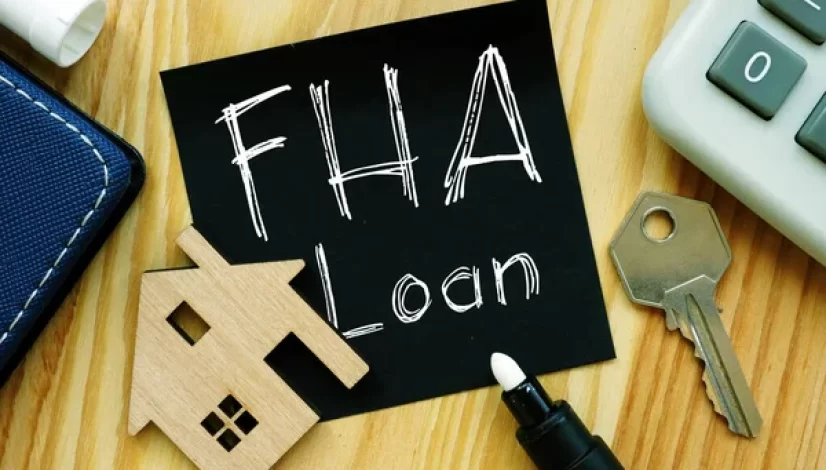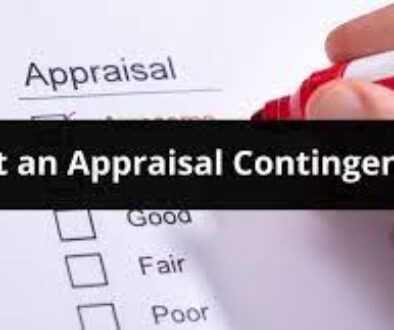FHA Loans & Mortgage
What is an FHA loan?
Before we explain how they work, let’s answer a common question: What is an FHA home loan? An FHA loan is a government-backed mortgage insured by the Federal Housing Society (FHA). FHA home loans require lower minimum credit scores and down payments than many conventional loans, which makes them especially popular with first-time homebuyers.
While the government insures these loans, they are actually underwritten and administered by third-party mortgage lenders approved by the FHA.
How do FHA loans work?
FHA loans come in 15-year and 30-year terms with fixed interest rates.The agency’s flexible underwriting standards are designed to help give borrowers who might not qualify for private mortgages a chance to become homeowners.
There’s one catch: Borrowers must pay FHA mortgage insurance premiums (MIP), which is designed to protect the lender if the borrower defaults. Mortgage insurance is required on most loans when borrowers put down less than 20 percent. All FHA loans require the borrower to pay two mortgage insurance premiums:
- Upfront mortgage insurance premium: 1.75 percent of the loan amount, paid when the borrower gets the loan; this premium can be rolled into the financed loan amount
- Annual mortgage insurance premiums: 0.45 percent to 1.05 percent, depending on the loan term (15 years versus 30 years), the loan amount and the initial loan-to-value ratio, or LTV; this premium amount is divided by 12 and paid monthly
If you were to borrow $150,000 with an FHA loan, for example, your upfront mortgage insurance premium would be $2,625 and your annual premium would range from $675 ($56.25 per month) to $1,575 ($131.25 per month), depending on the term.
On loans being taken out today, FHA mortgage insurance premiums will be cancelled after 11 years for most borrowers if they financed 90 percent or less of the property’s value — in other words, for those who put at least 10 percent down and stay current with their monthly mortgage payments. Loans with an initial LTV ratio greater than 90 percent will carry insurance until the mortgage is fully repaid.
FHA lenders are limited to charging no more than 3 percent to 5 percent of the loan amount in closing costs, and the FHA allows up to 6 percent of the borrower’s closing costs, such as fees for an appraisal, credit report or title search, to be covered by sellers, builders or lenders.
How to get an FHA loan
Here’s what you’ll need to do to get an FHA loan:
- Confirm your eligibility: Your first step is to make sure that you’re eligible for an FHA loan. Some of the requirements include having a credit score of 500 or higher, a verifiable employment history and income, and a debt to income of 43 percent or lower.
- Get familiar with loan limits: There are limits as to how much you can borrow with an FHA loan, depending on your property type and where you live. Specifically, multi-unit properties and areas with a higher cost of living will have higher limits.
- Know your budget: Before you submit an application for an FHA loan, you’ll want to know how much you can afford to spend on a home. Consider your current income, expenses and savings, and use Bankrate’s affordability calculator to estimate your budget.
- Look for lenders: As an FHA borrower, you’ll get your home loan from an FHA approved lender, which can set its own rates, costs and underwriting standards so long as the FHA minimums are met. Approved lenders range from national banks and credit unions to community banks and independent mortgage companies. It’s a smart idea to shop around to find the one that best meets your needs.
- Compile your documents and apply for your loan: Applying to borrow a large chunk of money means handing over a complete look under the hood of your finances. Before you apply for an FHA loan, have all these documents ready to go: two years of tax returns; two recent pay stubs; your driver’s licence; and full statements of your assets (checking account, savings account, 401(k) and any other places where you hold money).
- Compare your offers: Getting preapproved with multiple lenders is helpful so you can compare different mortgage rates and terms to make sure you’re getting the best deal.
Pros and cons of FHA loans
Pros
- zYou can have a lower credit score: If you haven’t established much of a credit history or you’ve encountered some issues in the past with making on-time payments, a 620 credit score — the typical magic number for consideration of a conventional mortgage — might seem out of reach. If your credit score is 580, however, you’ll be in good standing with most FHA-approved lenders.
- You can make a lower down payment: FHA loans also allow for a smaller down payment. With a credit score of at least 580, you can make a down payment of as little as 3.5 percent. If your credit score is between 500 and 579, you might still be able to qualify for an FHA-backed loan, but you will need to make a 10 percent down payment.
- You can own a home sooner: Instead of continuing to rent while trying to save more money or improve your credit score, you can become a homeowner! Since FHA loans make buying easier, you can start building home equity sooner, acquiring an important asset that increases your overall net worth.
Cons
- You won’t be able to avoid mortgage insurance: Since your credit score and down payment are lower, you’re considered a bigger default risk. To protect the lender, you have to pay the extra charge of mortgage insurance. You can roll the upfront insurance premium into your closing costs, but your annual premiums will be divided into 12 instalments and show up on every mortgage bill. If you put down less than 10 percent, you have to pay those annual premiums for the entire life of the loan. There’s no escaping them. That’s a big difference from conventional loans: Once you build up 20 percent equity, you no longer have to pay for private mortgage insurance on a conventional loan.
- You’ll have to meet property requirements: If you’re applying for an FHA loan, the home has to meet some eligibility requirements. The most important is the price: FHA-backed mortgages are not allowed to exceed certain amounts, which vary based on location. You have to live in the property, too. FHA loans for new purchases are not designed for second homes or investment properties.
- You could pay more: When you compare mortgage rates between FHA and conventional loans, you might notice the interest rates on FHA loans are lower. The APR, though, is the better comparison point because it represents the total cost of borrowing. On FHA loans, the APR can sometimes be higher than conventional loans.
FHA vs conventional loans
Unlike FHA loans, conventional loans are not insured by the government. Qualifying for a conventional mortgage requires a higher credit score, solid income and a down payment of at least 3 percent for certain loan programs. Here’s a side-by-side comparison of the two types of loans.




